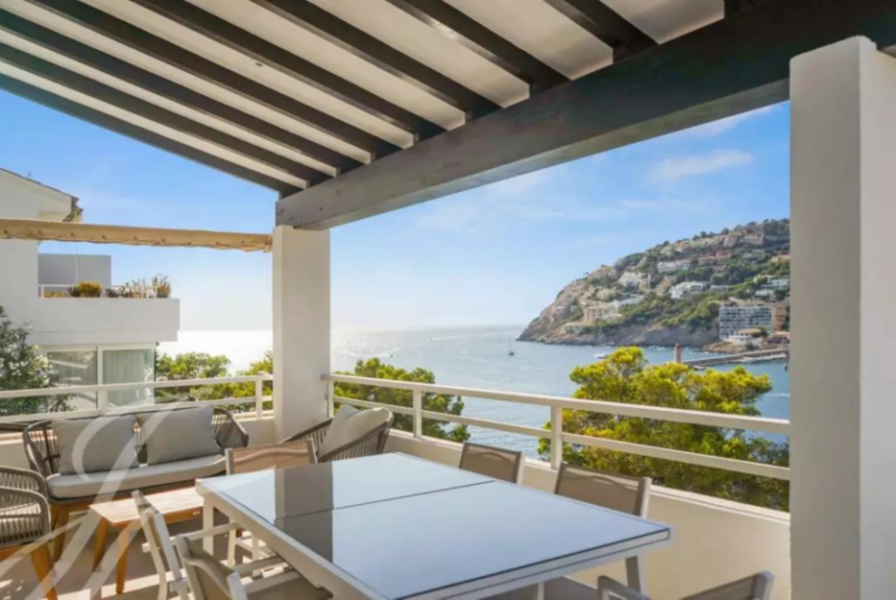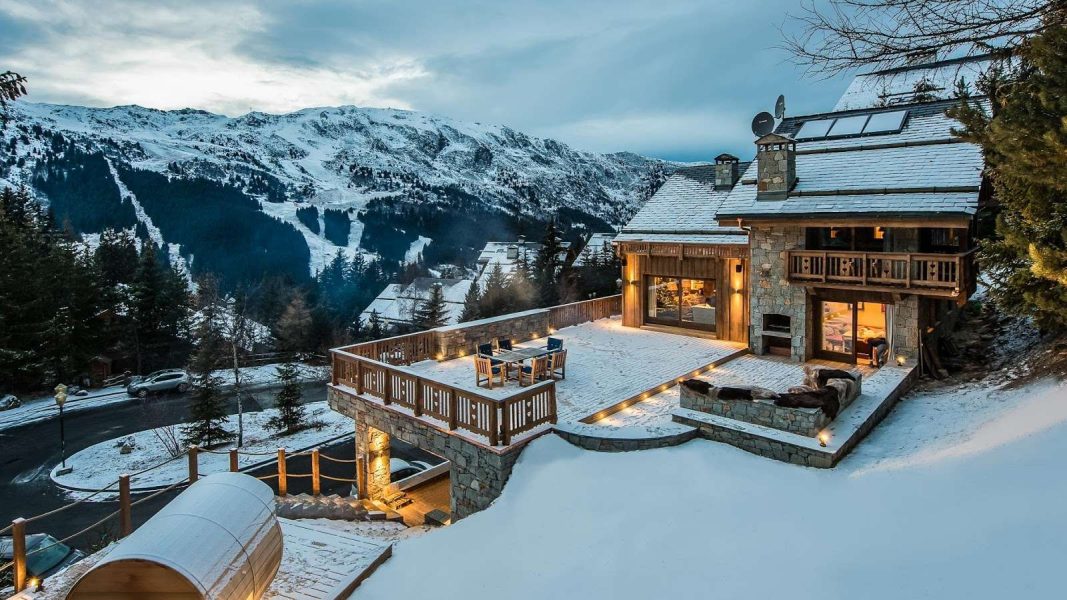Fractional Ownership: Shared Property, Shared Benefits
As the cost of owning a property continues to rise, more and more people are looking for creative ways to enjoy the benefits of ownership without bearing the full burden of the costs and responsibilities. One such option is fractional ownership, a form of shared ownership that allows multiple buyers to purchase a portion (or several portions) of a property (usually 1/8th) and use it for a set amount of time each year (you buy 1/8th you use 1/8th of the year). In this article, we will explain how fractional ownership works, what types of properties are suitable for it, what are the benefits and risks, and how it compares to other forms of shared ownership.
How Fractional Ownership Works
Fractional ownership is a legal arrangement that divides the ownership of a property into shares or fractions, each representing a portion of the property’s value and usage rights. The shares are usually sold to a group of investors, each of whom owns a fractional share of the deed in the property. The investors can then use the property for a specified period each year, typically determined by a schedule or an app.
The fractional owners can also let their property to generate rental income when not using all their share of the property. Each share is usually 1/8th, so that is 1.5 months a year per share and you can have up to four shares in the same property (6 months).
Fractional ownership is most commonly used for vacation homes, but it can also be used for other types of properties such as commercial real estate, yachts, airplanes, and even art collections. The properties are often managed by a professional management company that handles the maintenance, reservations, and financial aspects of the ownership.
Benefits of Fractional Ownership
Fractional ownership offers several benefits to buyers, including:
Reduced costs: By sharing the purchase price, maintenance costs, and property taxes, fractional ownership can be a more affordable option than full ownership.
Increased access to premium properties: By owning a fraction of a property, buyers can gain access to high-end properties that would be out of reach otherwise.
Hassle-free management: By delegating the management of the property to a professional company, buyers can avoid the hassle of dealing with repairs, reservations, and other administrative tasks.
Flexibility: By being able to buy more than one property share, you can build a collection of 2-3 locations to cover all your holiday needs. For example, a beach house, a country house, a ski property or even a city location. With four property shares, you still only pay half of one property (usually fractional ownership properties are divided into eight equal shares).
Very easy and affordable transfer of the property: With company shares, it is effortless to transfer to your spouse, children or anyone you like for that matter including a foreign company. Not only that, but you will save a lot of money in the process. Transferring a fractional ownership share in Spain or France can be as low as 500€! Compare that to transferring a property and you will be crying of joy for days!
Capital gains tax: because you only own a share of the property, when you decide to sell and make a profit (usually the case for premium properties which are very well maintained), you will often be paying a lower percentage of capital gains tax than if you sold 100% of the property.

It takes only a minute and we can send you the best properties to fit your requirements.
Risks of Fractional Ownership
Fractional ownership also has some risks and limitations that buyers should be aware of, such as:
Limited usage of a fractional ownership property: By only being able to use the property for a set amount of time each year, buyers may not be able to fully enjoy the property or use it whenever they need it. Logically if you buy an eighth of the property, you cannot use it more than 1/8th of the year. Also if you decide at the last minute to get a discounted flight to spend 4 days in your home, one of the other co-owners might be using it.
Interior design and personal tastes: Ok, we get it, you love that 70s vibe and flash colours and would just be the happiest person on earth with that beaded curtain in the main bedroom…but, in life, we sometimes have to make minor sacrifices. Our listed homes have been carefully decorated with a team of interior design, taking into account the regional characteristics and fixtures without being over the top. Do remember that the rental potential can be important as well as this can offset most of the monthly charges that you need to pay. A tasteful interior will guarantee just that.
And now, what are the risks of full ownership as we have always known it?
Financial commitment: Purchasing a property, especially premium real estate, involves a significant financial commitment, including the down payment, mortgage payments, property taxes, insurance, and maintenance costs. If you encounter financial difficulties or unexpected expenses, especially nowadays with an increasingly unstable world, it can strain your budget.
Illiquidity: Owning a property ties up a significant portion of your wealth in a non-liquid asset. Unlike financial investments that can be easily be bought or sold, selling a property can take time and may require market conditions to be favourable. This lack of liquidity can limit your financial flexibility and make it more challenging to access your capital when needed.
Maintenance and repair costs: As a homeowner, you are responsible for the maintenance and repair of your property. These costs can vary depending on the age, condition, and size of the property. Unexpected repairs can be costly, and if you don’t budget appropriately, it can strain your finances.
With a premium property, the maintenance costs can quickly add up. Here are some examples:
Pool maintenance: Luxury villas in Ibiza often feature private swimming pools. Regular maintenance is essential to keep the pool clean, properly balanced, and in good working order. This includes cleaning the pool, checking and maintaining water chemistry, servicing the filtration system, and addressing any repairs or leaks that may arise.
Landscaping and garden upkeep: Luxury villas typically have extensive outdoor spaces and landscaped gardens. Regular maintenance is necessary to keep the grounds well-maintained and aesthetically pleasing. This may involve lawn mowing, pruning trees and shrubs, fertilizing, irrigation system maintenance, and pest control.
HVAC system servicing: Heating, ventilation, and air conditioning (HVAC) systems require regular servicing and maintenance to ensure optimal performance. This includes cleaning or replacing filters, checking and maintaining ductwork, inspecting and repairing any malfunctions or inefficiencies, and scheduling routine inspections by professionals.
Exterior maintenance: The exterior of the villa, including the façade, roof, windows, and doors, needs periodic inspections and maintenance. This may involve repainting, repairing or replacing damaged exterior surfaces, maintaining the roof, sealing windows and doors, and ensuring proper drainage and gutter systems.
Electrical and plumbing systems: Regular inspections and maintenance of electrical and plumbing systems are crucial for safety and functionality. This includes checking for any faulty wiring, addressing plumbing leaks or clogs, inspecting and maintaining water heaters, and ensuring all electrical and plumbing fixtures are in good working order.
Interior renovations and updates: Over time, you may want to renovate or update certain areas of your luxury villa to maintain its appeal and value. This could involve remodeling bathrooms, upgrading kitchen appliances, replacing flooring, updating lighting fixtures, or refreshing the interior design.
Security system maintenance: Luxury properties often have advanced security systems in place. Regular maintenance and testing of security cameras, alarm systems, access controls, and other security features are essential to ensure their effectiveness and to provide peace of mind.
Why is Timeshare so different from fractional ownership of a second home?
Timeshares are sometimes confused with fractional ownership in that they allow buyers to purchase usage rights for a portion of a property. We do not sell timeshare properties! Still, they usually involve a fixed schedule or location and have less flexibility and investment potential. With a timeshare, you only own time, while with fractional ownership, you own a part of the deed and the properties in southern Europe are freehold. Fractional ownership is different from Timeshare.
With fractional ownership you manage directly your property with the other owners. At any point, you can get rid of the property management company and choose another company with the other co-owners or just manage it yourself. We can also provide a property management app for a small monthly fee so that you the owners, are the only ones managing your property.

Fractional ownership through a company shell is nothing new!
Families or groups of friends have used fractional ownership purchase of premium properties for a long time. They would put the deed in a shell company for it to be divided into parts or shares.
The main difference with nowadays is that we offer professional property management. This way, you avoid the financial and potential emotional conflicts that could arise between co-owners. You can remain anonymous if you wish never to meet the other co-owners or… you can meet them if you want to. An excellent opportunity is during the co-ownership assembly once a year. You can be present physically or through a video chat.
REITs involve multiple investors pooling their money to buy and manage a portfolio of properties, but they are usually more focused on generating income and have less usage rights and personalization options.
Conclusion about fractional ownership for second homes
Fractional ownership is a wonderful option for those who want to enjoy the benefits of owning a premium property without the full costs and the stress linked to property management.
It takes only a minute and we can send you the best properties to fit your requirements.




